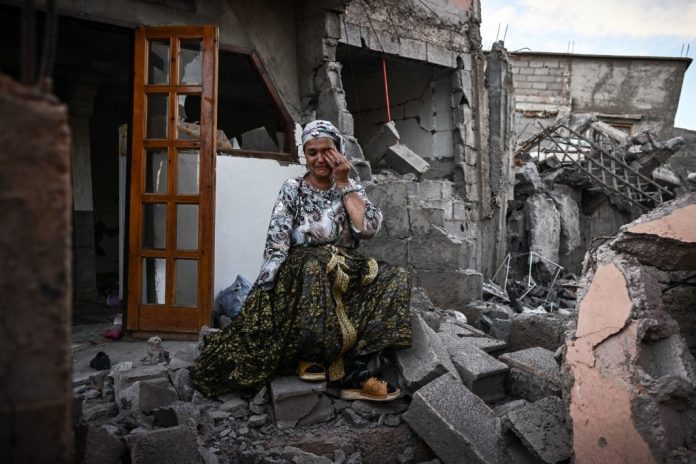MARRAKESH, Morocco, 11 Sep: Survivors of Morocco’s deadliest earthquake in more than six decades struggled to find food, water and shelter on Sunday as the search for the missing continued in remote villages and the death toll of more than 2,100 seemed likely to rise further.
Many people were spending a third night in the open after the 6.8 magnitude quake hit late on Friday.
Relief workers face the challenge of reaching the worst-affected villages in the High Atlas, a rugged mountain range where settlements are often remote and where many houses crumbled.
The death toll climbed to 2,122 with 2,421 people injured, state TV reported.
Late on Sunday, King Mohammed VI thanked Spain, Qatar, the UK and the UAE for sending aid, state TV said in a post on social media site X (formerly known as Twitter).
The damage done to Morocco’s cultural heritage became more evident as local media reported the collapse of a historically important 12th century mosque.
The quake also damaged parts of Marrakesh old city, a Unesco World Heritage site.
In Moulay Brahim, a village 40km south of Marrakesh, residents described how they dug the dead from the rubble using their bare hands. On a hillside overlooking the village, residents buried a 45-year-old woman who had died along with her 18-year-old son, a woman sobbing loudly as the body was lowered into the grave.
As he retrieved possessions from his damaged home, Hussein Adnaie said he believed people were still buried in the rubble nearby.
Twenty-five bodies had been brought to the village’s small clinic, according to staff.
With many homes built of mud bricks and timber or cement and breeze blocks, structures crumbled easily. It was Morocco’s deadliest earthquake since 1960 when a quake was estimated to have killed at least 12,000 people.
In the badly hit village of Amizmiz, residents watched as rescuers used a mechanical digger on a collapsed house.
“They are looking for a man and his son. One of them might still be alive,” said Hassan Halouch, a retired builder. The team eventually recovered only bodies.
The army, mobilised to help the rescue effort, set up a camp with tents for the homeless. With most shops damaged or closed, residents struggled to get food and supplies.
The quake’s epicentre was 72km southwest of Marrakech, a city beloved by Moroccans and foreign tourists for its medieval mosques, palaces and seminaries richly adorned with vivid mosaic tiling amid a labyrinth of rose-hued alleyways.
In the southeast of the city, in the Sidi Youssef Ben Ali neighbourhood, Bilal did not dare to return home.
The government said on Sunday it has set up a fund for those affected by the earthquake. The government has also said it is reinforcing search-and-rescue teams, providing drinking water and distributing food, tents and blankets. The World Health Organisation said more than 300,000 people have been affected by the disaster.
Morocco has declared three days of mourning and King Mohammed VI called for prayers for the dead to be held at mosques across the country.




